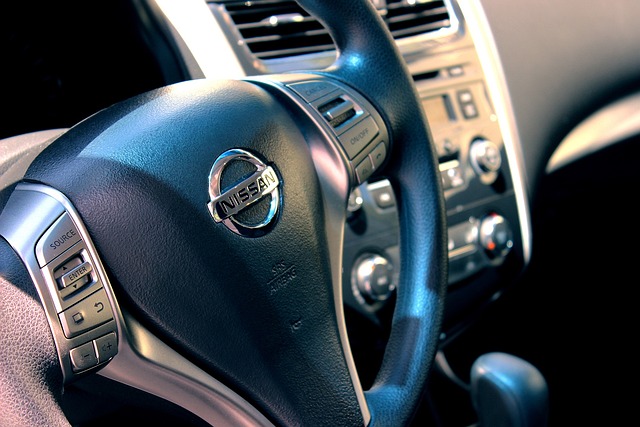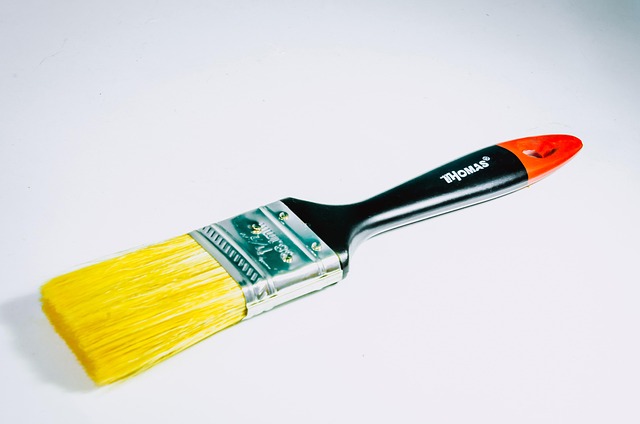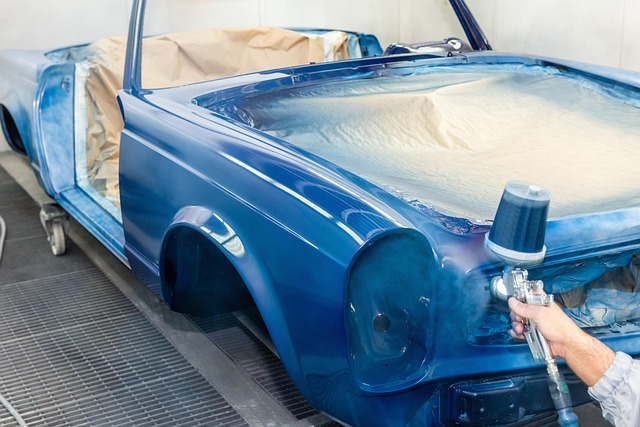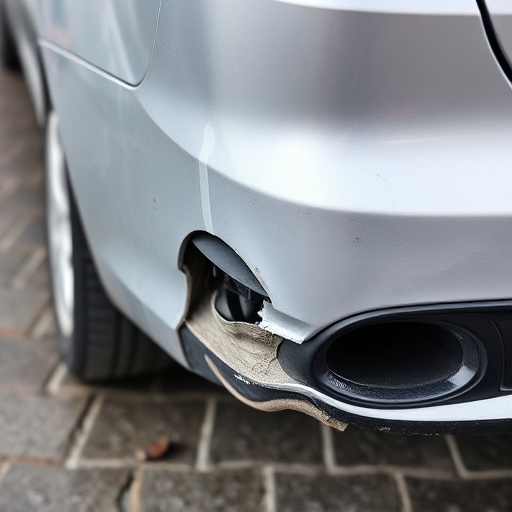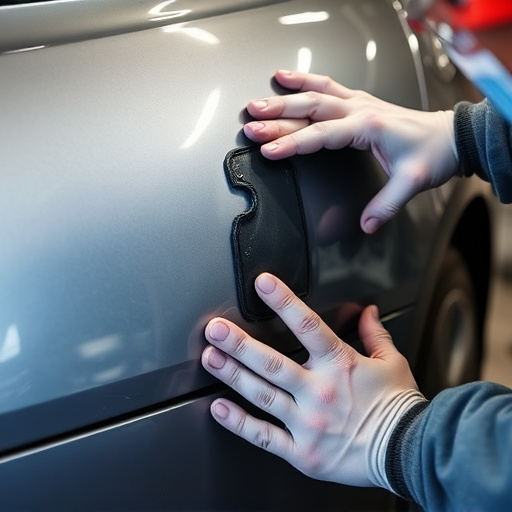Color spectrophotometry, a precise scientific tool, measures light interaction with car paint, revolutionizing auto industry quality control and resale value assessment. It detects subtle color variations, ensuring consistency, aiding in used car analysis, and guiding repair decisions. Accurate color measurement is vital for maximizing vehicle resale values, making color spectrophotometers indispensable tools for auto shops to maintain and enhance car quality.
A vehicle’s exterior color is a significant factor influencing its resale value. This is where color spectrophotometry comes in—a precise science measuring color and its properties. By understanding how this technology assesses vehicle paint, buyers and sellers can make informed decisions. This article explores the impact of color spectrophotometer readings on resale value, offering insights into best practices for maintaining color accuracy to maximize a vehicle’s worth.
- Understanding Color Spectrophotometry in Vehicles
- The Impact on Resale Value: What to Expect
- Best Practices for Maintaining Color Accuracy
Understanding Color Spectrophotometry in Vehicles
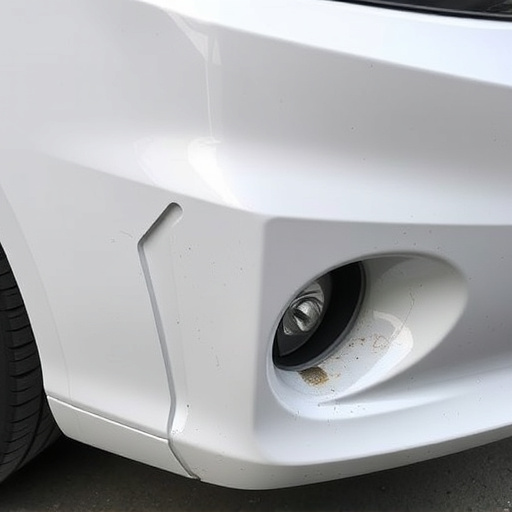
Color spectrophotometry is a precise scientific technique that measures light absorption and reflection properties of materials, including vehicle finishes. It’s a technology that has revolutionized the auto industry by providing an objective way to assess color accuracy and consistency in car manufacturing and repair. By analyzing the spectral characteristics of a vehicle’s paint, this method can detect even subtle variations, ensuring each car meets strict quality standards.
This advanced tool is particularly valuable in vehicle resale value analysis. When assessing used cars, a color spectrophotometer can quickly identify if a vehicle has undergone improper repairs or bodywork, such as substandard auto glass replacement or hasty paint jobs. This level of detail allows buyers and sellers to make informed decisions, ensuring that the resale value accurately reflects the car’s true condition, particularly in terms of its exterior appearance and overall quality.
The Impact on Resale Value: What to Expect
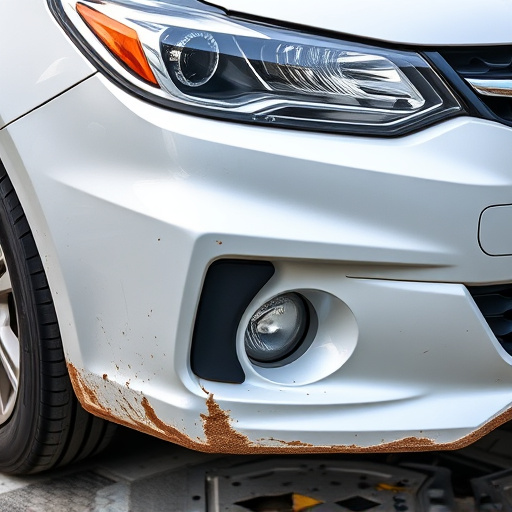
The color spectrophotometer plays a significant role in predicting and influencing vehicle resale value. This advanced tool measures and analyzes the exact shade and hue of a car’s paint, providing an objective assessment of its condition. When it comes to reselling, consistency and originality are key; minor variations or imperfections in color can impact a vehicle’s perceived value. By comparing the measured data with original specifications, buyers and sellers gain valuable insights into any potential issues or needed repairs, especially in cases of automotive body work, restoration, or frame straightening.
Unexpected color discrepancies might indicate previous accidents or substandard repair work, which could lower the resale price. Conversely, a vehicle with pristine paint that closely matches its original specifications stands to fetch a higher value. Thus, using a color spectrophotometer as part of pre-sale inspections can help set realistic expectations and ensure both parties are satisfied with the transaction, ultimately affecting the overall market value of similar vehicles.
Best Practices for Maintaining Color Accuracy
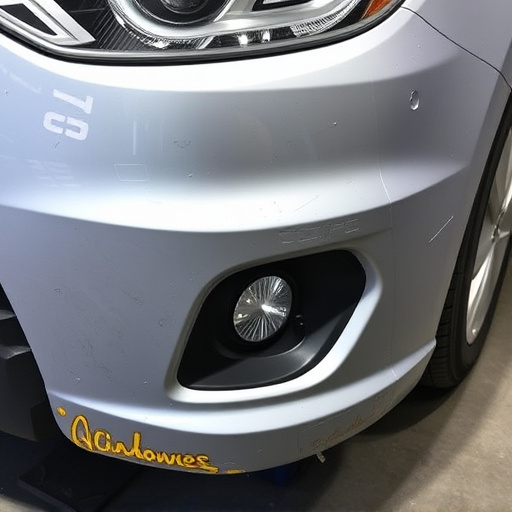
Maintaining color accuracy is paramount when dealing with vehicle resale values, and that’s where a color spectrophotometer comes in as an invaluable tool. To ensure consistent results, auto repair shops and automotive body work experts should establish best practices for calibrating and using these devices regularly. This involves keeping the instrument clean and free from dust or debris, which can distort readings. Standardized lighting conditions are crucial; the spectrophotometer should be operated under controlled, uniform illumination to avoid variations that might skew color measurements.
Additionally, regular calibration is essential. Over time, these instruments may drift in their settings, leading to inaccurate color assessments. Calibration ensures that the spectrophotometer provides precise data, enabling auto repair services to make informed decisions about paint matching and restoration processes. By adhering to these best practices, professionals can guarantee that vehicle colors are accurately matched during repairs or modifications, ultimately preserving and enhancing the car’s resale value.
A color spectrophotometer plays a pivotal role in determining and maintaining vehicle resale value. By accurately measuring and matching colors, it ensures that vehicles present their best appearance, maximizing appeal to potential buyers. Through understanding its impact and adopting best practices for color accuracy, car dealers and owners can leverage this technology to enhance resale prospects, ultimately contributing to better financial outcomes in the dynamic automotive market.


